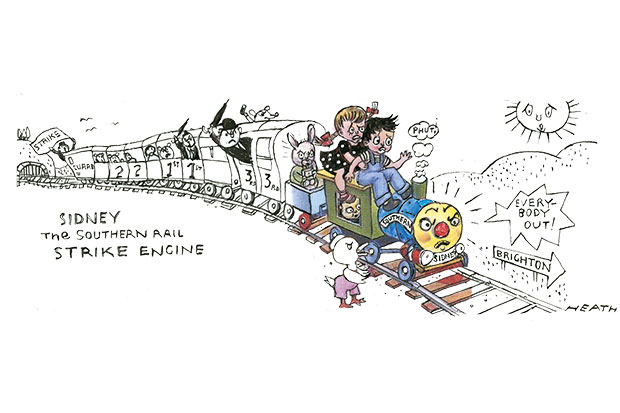Home
The government floated the idea that individuals might receive payments in areas where fracking was approved, or where housing developments gained permission. Grammar schools might also be revived, it was suggested. Failing to go ahead with the Hinkley Point nuclear power station could damage China’s relationship with Britain, its ambassador Liu Xiaoming wrote in the Financial Times. A 19-year-old Norwegian of Somali origin was arrested after the fatal stabbing of an American woman in Russell Square, London. Tanveer Ahmed, 32, from Bradford, was jailed for life or a minimum of 27 years, after admitting the murder of Asad Shah, an Ahmadi Muslim by religion, outside his shop in Glasgow, because he had ‘disrespected’ Islam. A 22-year-old man, said to have been drunk, was arrested at 4 a.m. after climbing a fence into the grounds of Buckingham Palace, from which the Queen is absent. A pair of embroidered silk stockings worn in her twenties by Queen Victoria fetched £220 at auction in Newcastle.
A High Court ruling overturned a ban on those who had joined Labour since 12 January, about 130,000 people, from voting in the election for the party’s leader next month. A committee of the national executive committee appealed against the ruling in the name of the Labour party. Six supporters of Jeremy Corbyn won the six constituency places on Labour’s national executive committee, giving him a majority on the body. Tom Watson, the party’s deputy leader, accused supporters of Mr Corbyn of ‘caucusing and factionalising and putting pressure where they can, and that’s how Trotsky entryists operate’. Andy Burnham, the shadow home secretary, was selected as Labour’s candidate in the first election for mayor of Manchester next May. If successful he would resign as an MP. Among medals for Great Britain and Northern Ireland in the Olympics was a bronze for trap shooting for Ed Ling, a farmer from Somerset.
British industrial output grew at its fastest rate since 1999 in the second quarter, but the economy as a whole was estimated to have grown by only 0.3 per cent. The FTSE 100 share index reached a 14-month high; the FTSE 250 index climbed well above its level before the EU referendum. The pound wallowed below $1.30. Bombardier in Derby received a £1 billion order to make 660 railway carriages. After 306 of its members voted in favour, the RMT union held a five-day strike on Southern Rail. A railway enthusiast was killed when the put his head out of the window of the Gatwick Express at Wandsworth Common, London, perhaps to see why it was going slowly. The 6th Duke of Westminster died, aged 64.
Abroad
Syrian government and rebel forces faced each other at Aleppo, where hundreds of thousands of civilians remained short of food and water in temperatures reaching 40°C. About 70 people, many of them lawyers, were killed in a bomb attack in Quetta, Pakistan, when they gathered outside a hospital to mourn a prominent lawyer, Bilal Kasi, murdered earlier in the day. After meeting President Recep Tayyip Erdogan of Turkey in St Petersburg, President Vladimir Putin of Russia said that trade sanctions against Turkey would be phased out. Russia was banned from the Paralympics. Many Olympic athletes, including Michael Phelps, who has won more medals in his time than anyone else, were seen to have round purple marks on their skin left by the fashion for supposedly therapeutic cupping.
The African National Congress, South Africa’s governing party, suffered big losses to the Democratic Alliance in local elections. The Australian Bureau of Statistics apologised for a systems crash that prevented thousands from completing census returns online for the first time. The economy of the eurozone grew by 0.3 per cent in the second quarter.
In Thailand, 61 per cent of voters in a referendum supported a constitution drafted by a committee appointed by the army; the turnout was 55 per cent. Emperor Akihito of Japan, aged 82, said in a television broadcast that he would contemplate his position in the years to come, which was taken as a hint that he wishes to be allowed to abdicate because of ill health. Japan said that China had sailed a fleet of 230 vessels near the Japanese-controlled Senkaku islands in the East China Sea. A Chinese tourist spent nearly a fortnight in a German migrant hostel after his report of a theft was mistaken for an application for asylum; an interpreter brought from a Chinese restaurant in Dülmen discovered the mistake. CSH






Comments